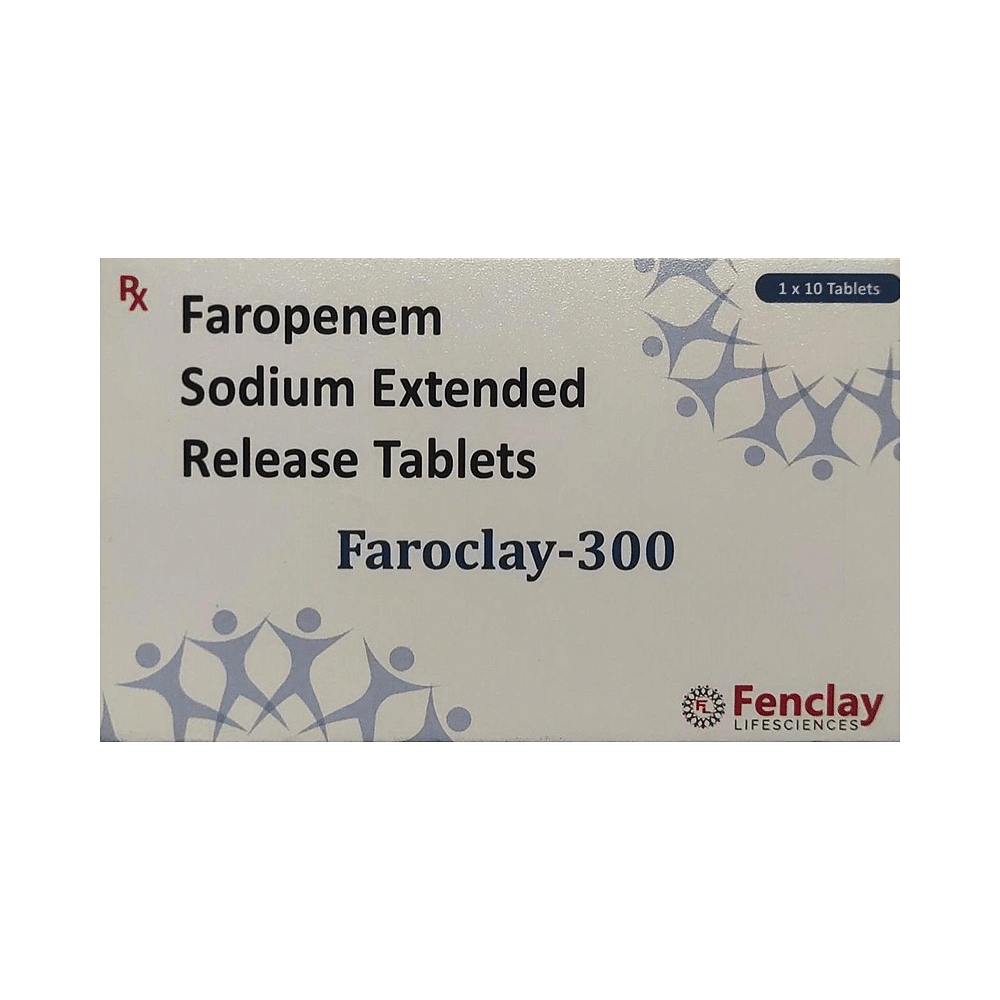
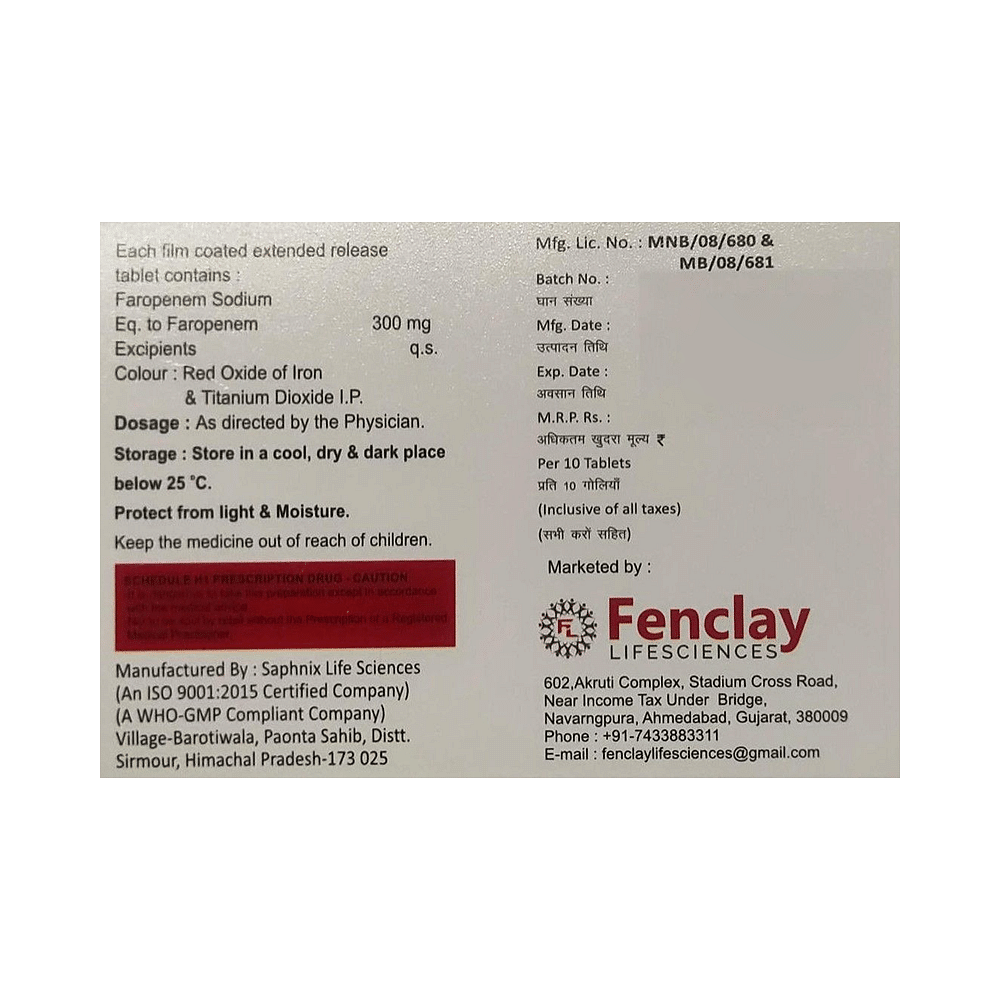
Faroclay 300 Tablet ER
Manufacturer
Fenclay Lifesciences
Salt Composition
Faropenem (300mg)
Key Information
Short Description
Faroclay 300 Tablet ER is an antibiotic medicine used to treat severe bacterial infections such as respiratory tract infections, urinary tract infections, skin infections, and gynecological infections.
Dosage Form
Tablet ER
Introduction
Faroclay 300 Tablet ER is an antibiotic medicine that is primarily used in the treatment of infections of the lungs and urinary tract. Additionally, it may also be used to treat skin and gynecological infections. It is usually used for infections that did not resolve with other antibiotics.
Directions for Use
Take this medicine in the dose and duration as advised by your doctor. Swallow it as a whole. Do not chew, crush or break it. Faroclay 300 Tablet ER may be taken with or without food, but it is better to take it at a fixed time.
Safety Information
Side Effects
No common side effects listed.
Alcohol Warning
It is not known whether it is safe to consume alcohol with Faroclay 300 Tablet ER. Please consult your doctor.
Breastfeeding Warning
Faroclay 300 Tablet ER is probably unsafe to use during breastfeeding. Limited human data suggests that the drug may pass into the breastmilk and harm the baby.
Pregnancy Warning
Faroclay 300 Tablet ER may be unsafe to use during pregnancy. Although there are limited studies in humans, animal studies have shown harmful effects on the developing baby. Your doctor will weigh the benefits and any potential risks before prescribing it to you. Please consult your doctor.
How it works
Faroclay 300 Tablet ER is an antibiotic. It kills bacteria by preventing them from forming the bacterial protective covering (cell wall) which is needed for them to survive.
Quick Tips
Faroclay 300 Tablet ER helps treat severe bacterial infections such as respiratory tract infections Urinary tract infection Skin infections and gynaecological infections Diarrhea may occur as a side effect. Inform your doctor if you develop severe stomach pain or if you find blood in your stools. Your doctor may monitor your liver and kidney function while you are having treatment with this medication. Inform your doctor if you are pregnant, planning to conceive, or breastfeeding.
Related Medicines
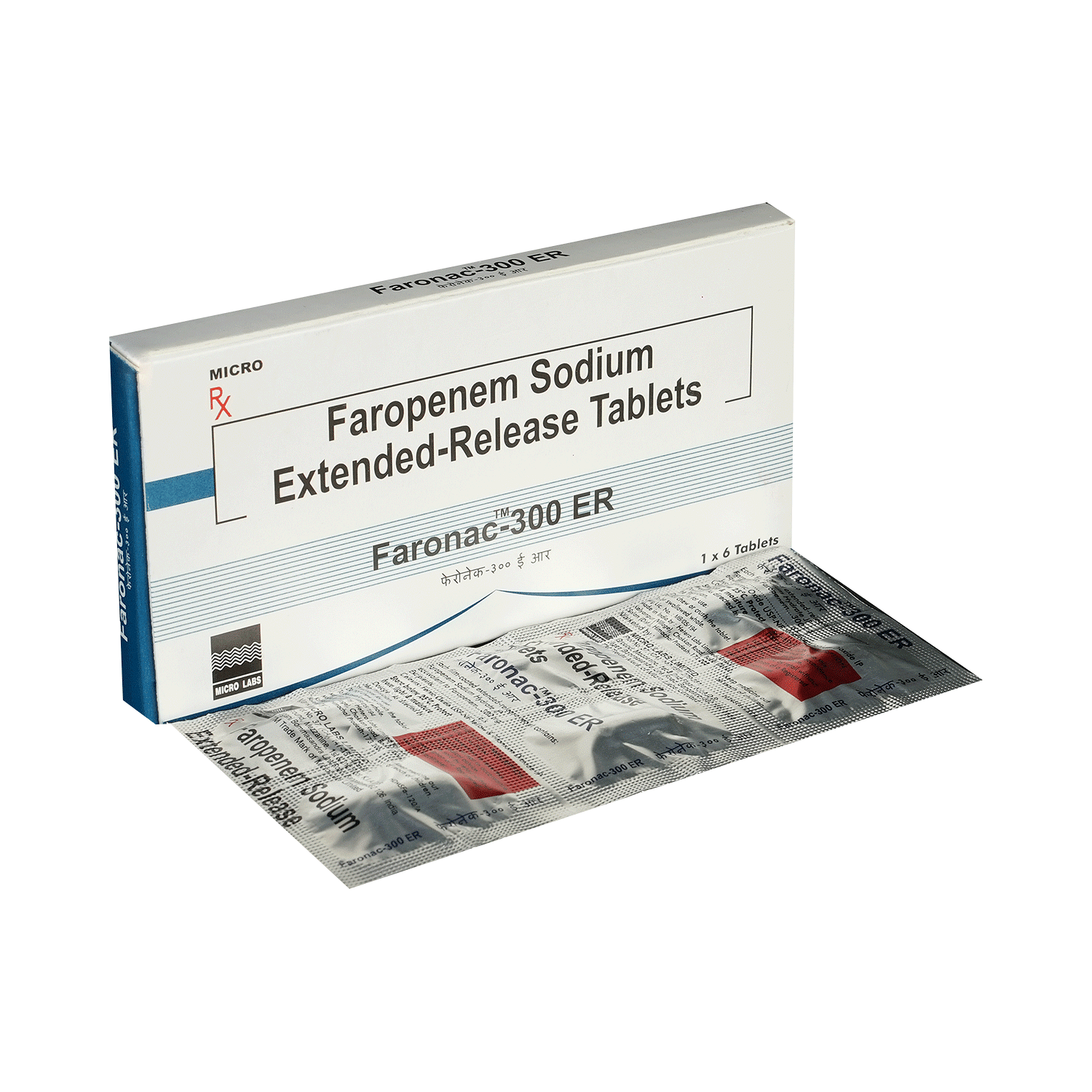
Faronac 300 mg Tablet ER

Farobact 300mg Tablet ER
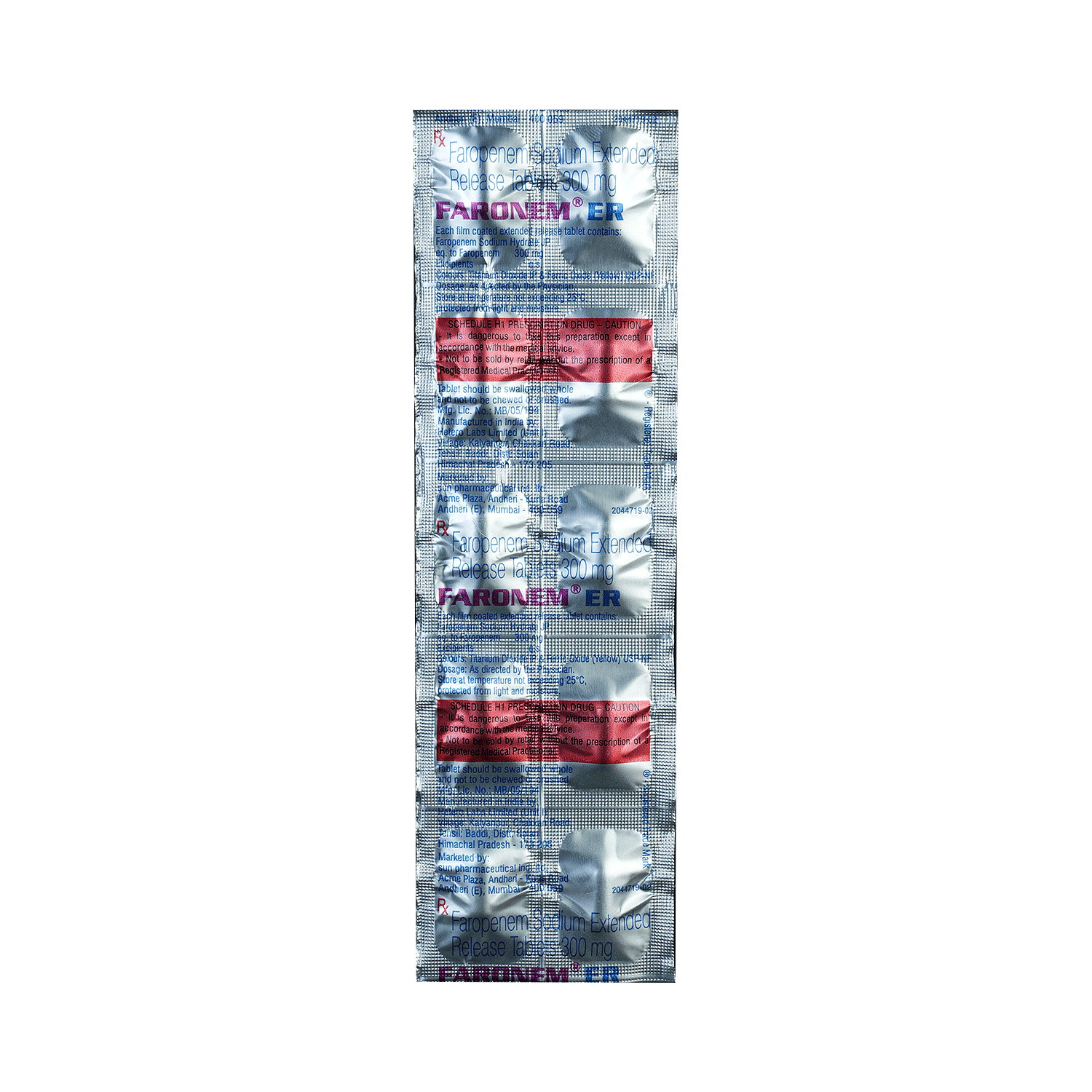
Faronem ER Tablet

Farohit 300mg Tablet ER

Faro 300mg Tablet ER

Farospect 300mg Tablet ER
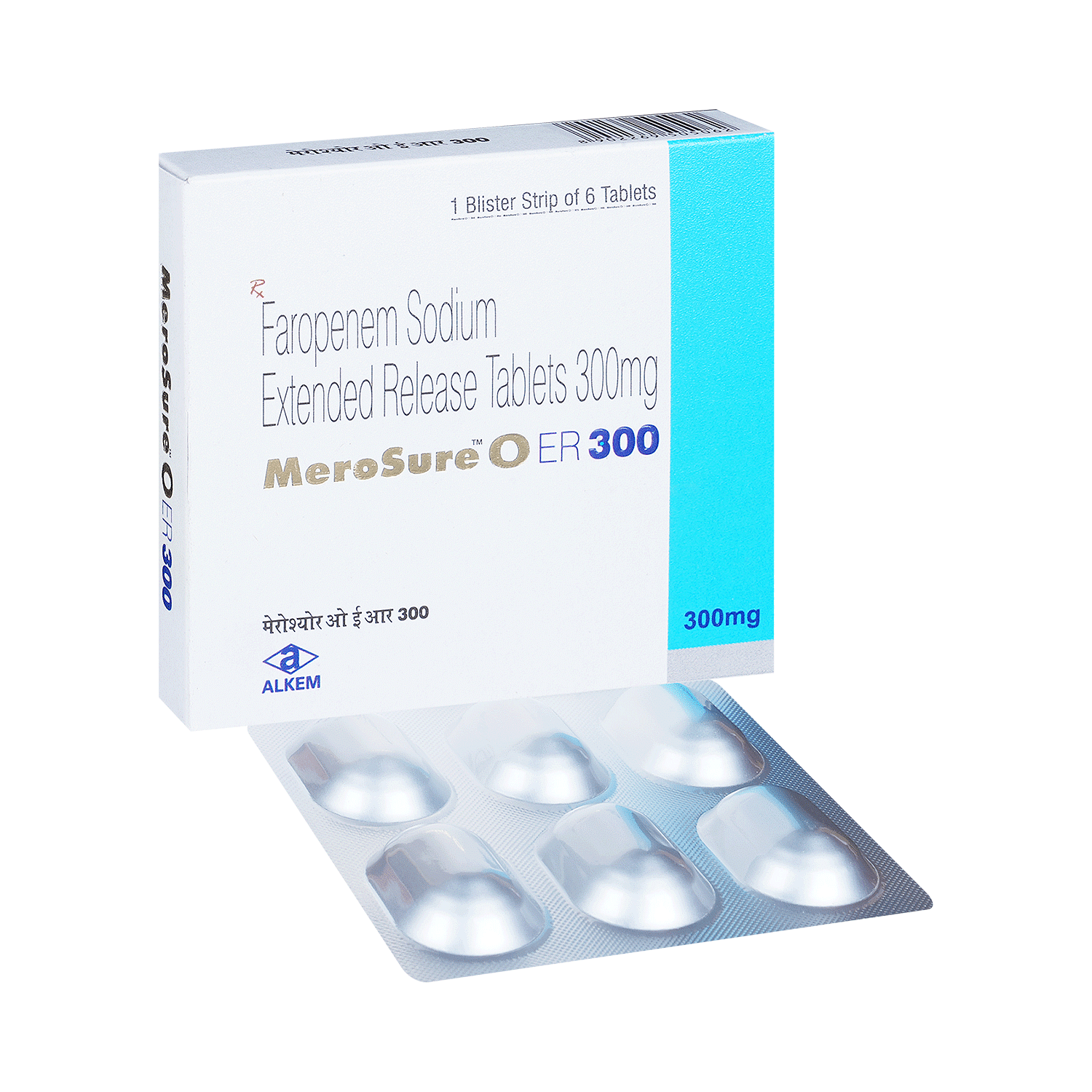
Merosure O ER 300 Tablet
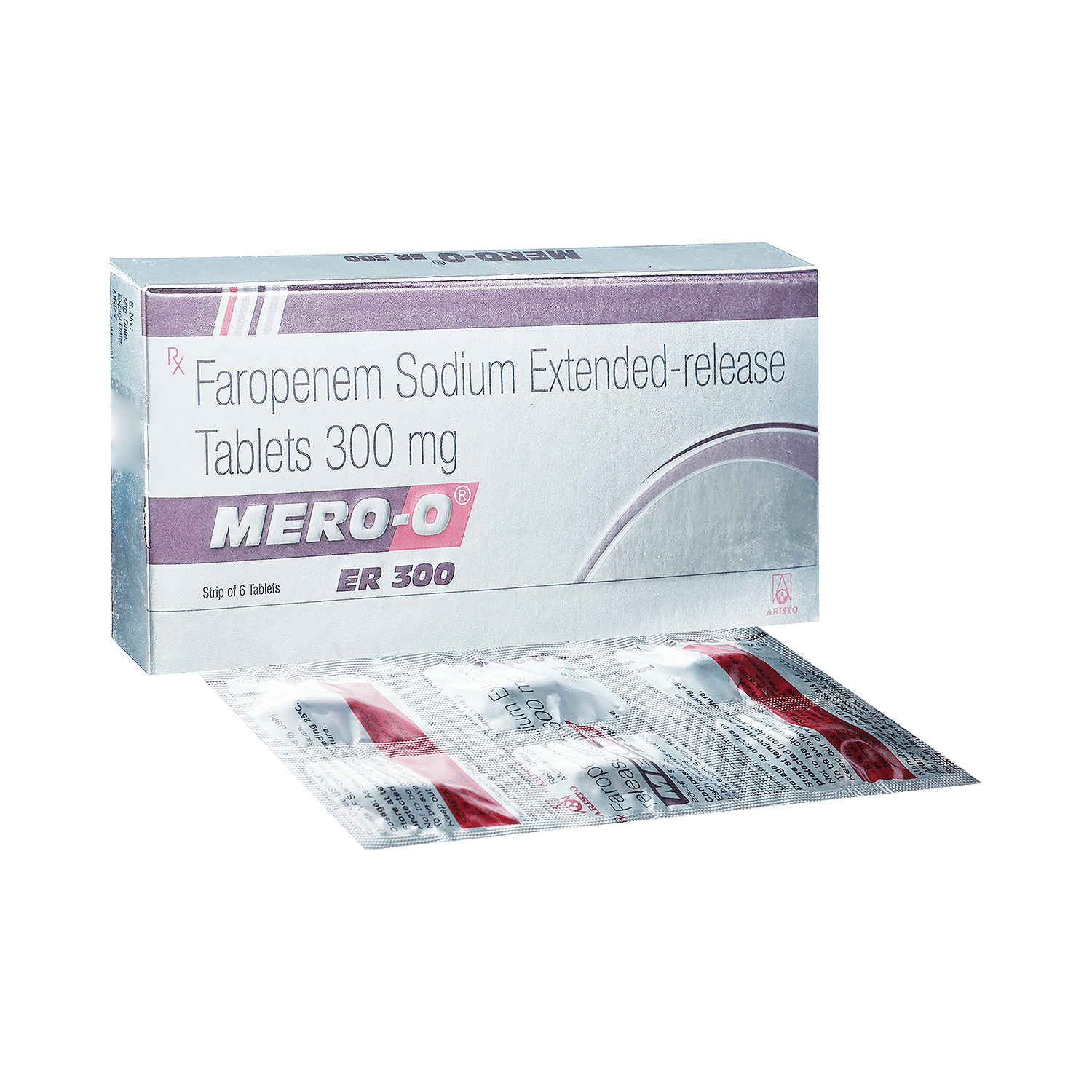
Mero-O ER 300 Tablet

Farokaa 300mg Tablet ER

Faropress 300mg Tablet ER
Frequently asked questions
Can the use of Faroclay 300 Tablet ER cause diarrhea?
Yes, Faroclay 300 Tablet ER can cause diarrhea. It is an antibiotic that kills harmful bacteria. However, it also affects the beneficial bacteria in your stomach or intestine and can lead to diarrhea. If diarrhea persists, please consult your doctor about it.
What if I do not get better after using Faroclay 300 Tablet ER?
If you do not experience improvement after completing the full course of treatment, contact your healthcare provider. Also, inform them if your symptoms are worsening while taking this medication.


